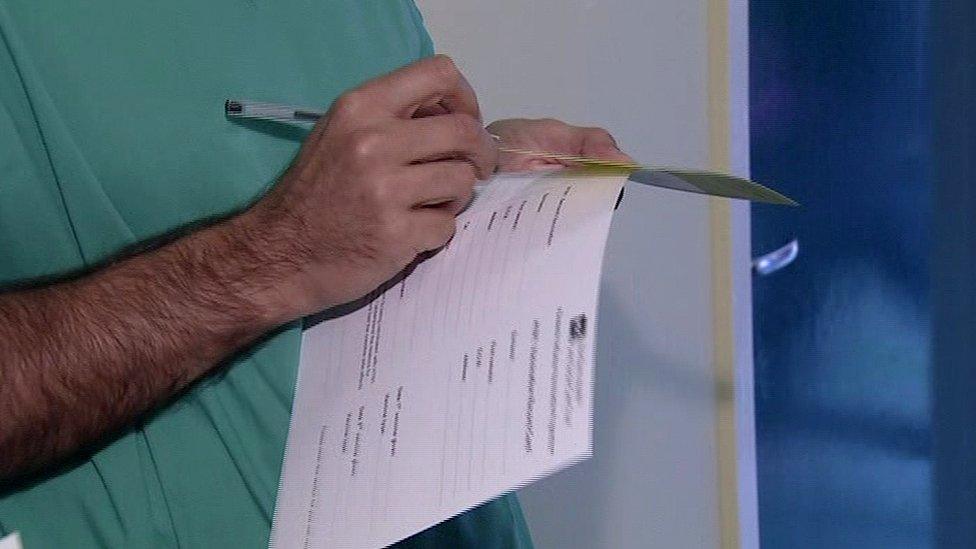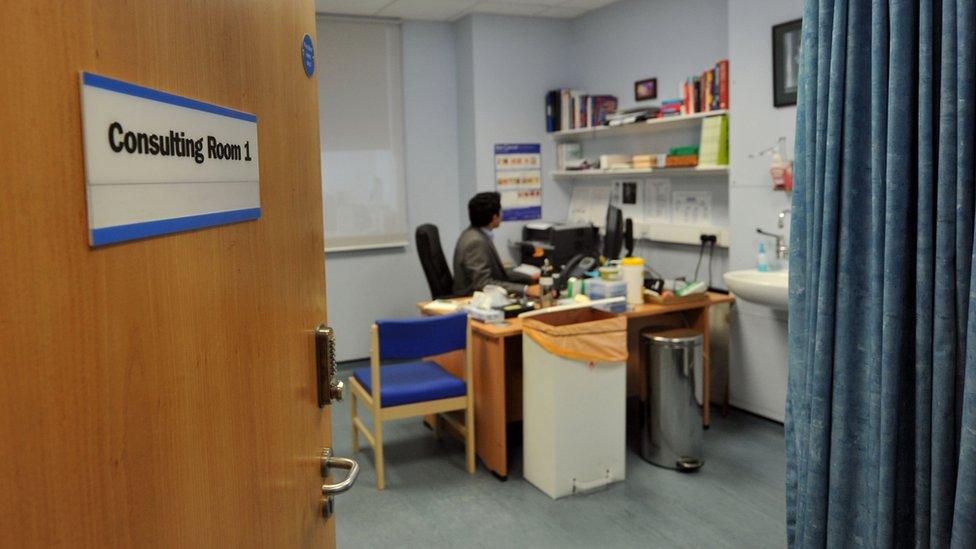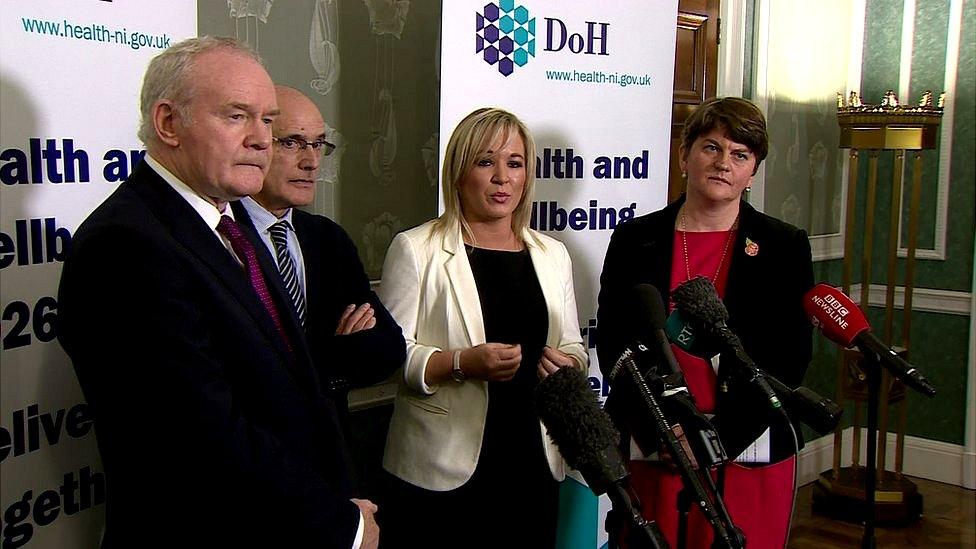Stormont crisis 'having massive healthcare effect'
- Published

Opportunities to transform the health service are being lost, health professionals warn
"Massive ramifications" - that is how one senior health professional described the impact of not having an executive or a formal budget in place.
The Department of Finance's most senior civil servant, David Sterling, will use emergency powers to release cash.
But it is not like a budget bedded into the system with the normal procedures triggered for allocating funds.
The professional said the move was disappointing, worrying and extremely frustrating.
Opportunities to transform the service were being lost and years of working to get Northern Ireland to this point were about to go down the drain, they added.
As much as the health and social care system devours its daily cash injection of more than £10m, it also craves leadership.
At present, there are three significant health policies sitting with the Department of Health. The problem is no-one is at the helm to press the 'go' button.
Those policies centre around the future of GP services, the elective care plan and population health models.
Plans on hold
In December, just a few days before Christmas, the British Medical Association came to a long-awaited agreement with the health minister around the future of GP services.
I understand everyone was happy with that outcome.
The plan outlined funding, the direction of travel for the future of services and, perhaps most importantly, it secured the government's commitment to support Northern Ireland's GPs.
That plan is now on hold.
Next up - the elective care plan published in March to tackle hospital waiting lists.

A plan to support Northern Ireland's GPs is now on hold
That requires a budget of about £31m, but that is only to treat those people who have been waiting more than 12 months for treatment by the end of March.
At the time, politicians said that money had been signed off by the finance minister - of course, that chapter now has a sequel and there is no guarantee that £31m will still be made available.
Finally a long-awaited policy around population health. These are specific plans targeting issues in particular geographical areas, focussing on health inequalities.
They include issues affecting older people, obesity and diabetes.
Money and services would be targeted at need. Such specific planning in Northern Ireland is rare.
Without a proper long-term budget, the health trusts, including Northern Ireland's Ambulance Service, the community and voluntary sector cannot plan ahead.
Officials cannot look at exploring ways of buying new technology and innovative drugs. In fact, Mr Sterling's plans to release cash were described as just a short-term measure that will simply tide the service over - hardly any way to run a health service.
The Health and Social Care Service devours money, spending more than £10m a day just to keep the service ticking over.
With an ageing and growing population and no additional funding to match, the system needs to undergo a massive transformation.
The current political stalemate means there will be no transformation of the health service - instead it will just keep doing things as before - something that both Sinn Féin's Stormont leader Michelle O'Neill and DUP leader Arlene Foster said could not be allowed to happen.
Trudging along as before would ensure the system going bust.
Staff morale
The dismal mood set at Stormont is affecting healthcare staff, who were already working under tremendous pressure.

Not long ago, flanked by the then first and deputy first ministers, Michelle O'Neill and Professor Raphael Bengoa sold their vision of the future of healthcare in NI
Recall the day not that long ago when, flanked by the then first and deputy first ministers, Michelle O'Neill and Professor Raphael Bengoa sold their vision to anyone who would listen. That was clever choreography that spoke volumes.
Such positive mood music sent positive vibes across the system. That upbeat mood was felt among staff - staff and most politicians were willing that change to happen.
Listen to the mood music now.
It is hard to believe that 12 months ago there were calls to take politics out of health - it is ironic that it is the very lack of politics now that is crucially delaying health reform.
That is perhaps further evidence for those who call for politics to be permanently removed from running health and social care in Northern Ireland.
- Published21 June 2016
